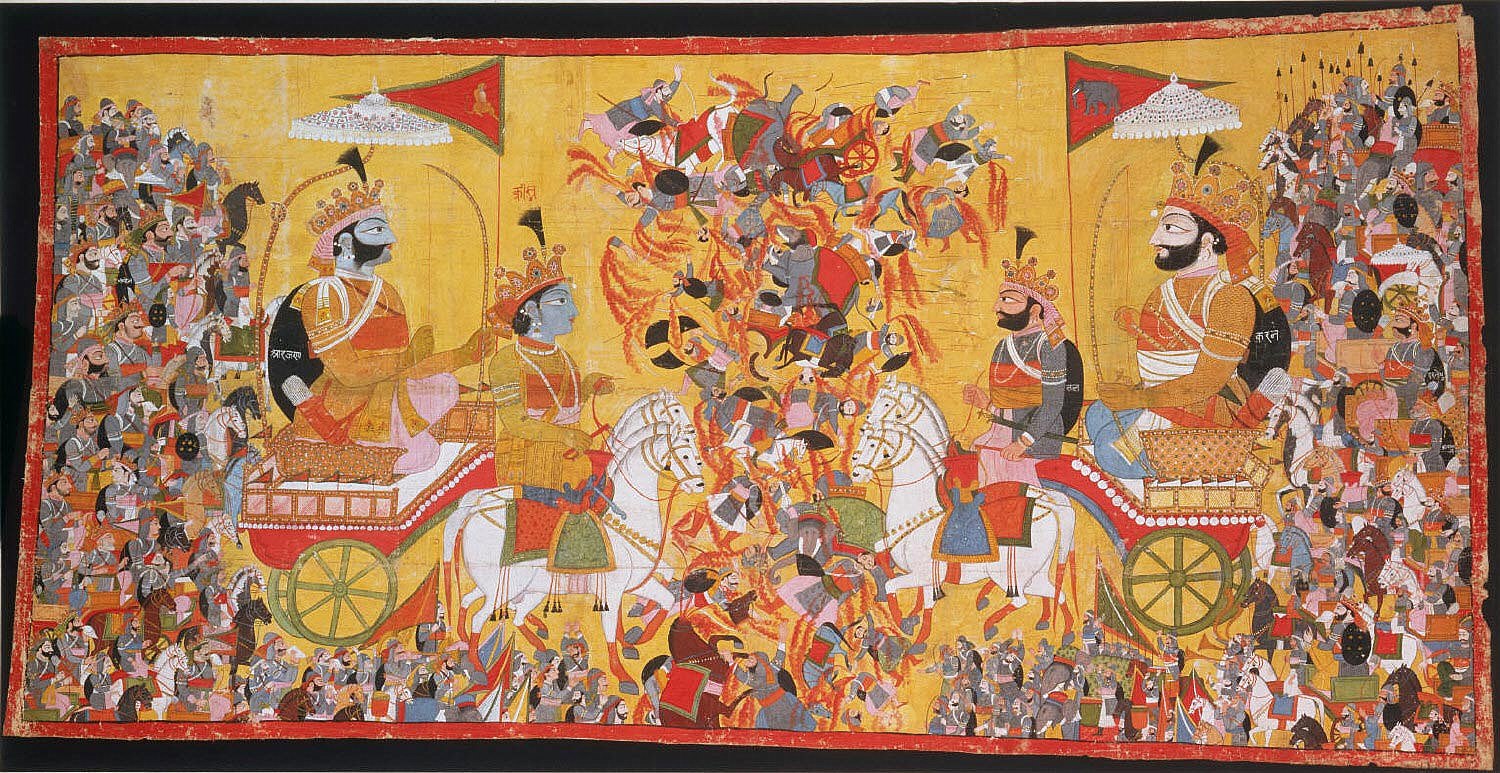When I think of the Mahabaratha, usually what comes to mind is the battle between the Pandavas and the Kauravas. I think the way the epic is narrated, the story builds to the eventual battle--which in a way is a battle of good vs. evil like in the Ramayana. While the battle is a crucial element to the Mahabaratha, I think the importance of it lies with the Bhagavad Gita and the internal struggles that each of the characters face. It appeals to the reader because of the parallels with every day life. Obviously, not everyone faces a violent battle to the extent of the Pandavas versus the Kauravas, but, everyone faces battles in life. These battles often take form in internal disputes, relationship troubles, issues with work/school, etc. The various lessons within the Mahabartha act as a guide to facing one's problems head-on and confronting them. While Veda Vyasa wrote this epic with an elaborate battle, depicted with intricate details, he was really appealing to the common man in describing how to confront these every day battles. However, in keeping with this theme of tackling issues, he also makes sure to address the troubles that come from it. Specifically, the Pandavas are obviously distraught at the fact that their cousins are now dead, by their hands. The Bhagavad Gita, for example, helps Arjuna to come to terms with the fact that he will have to fight his cousins. In an every day context, the Gita can be applied to literally anything. And that is the beauty of the Mahabaratha.

 Pandavas vs. Kauravas (
Pandavas vs. Kauravas (